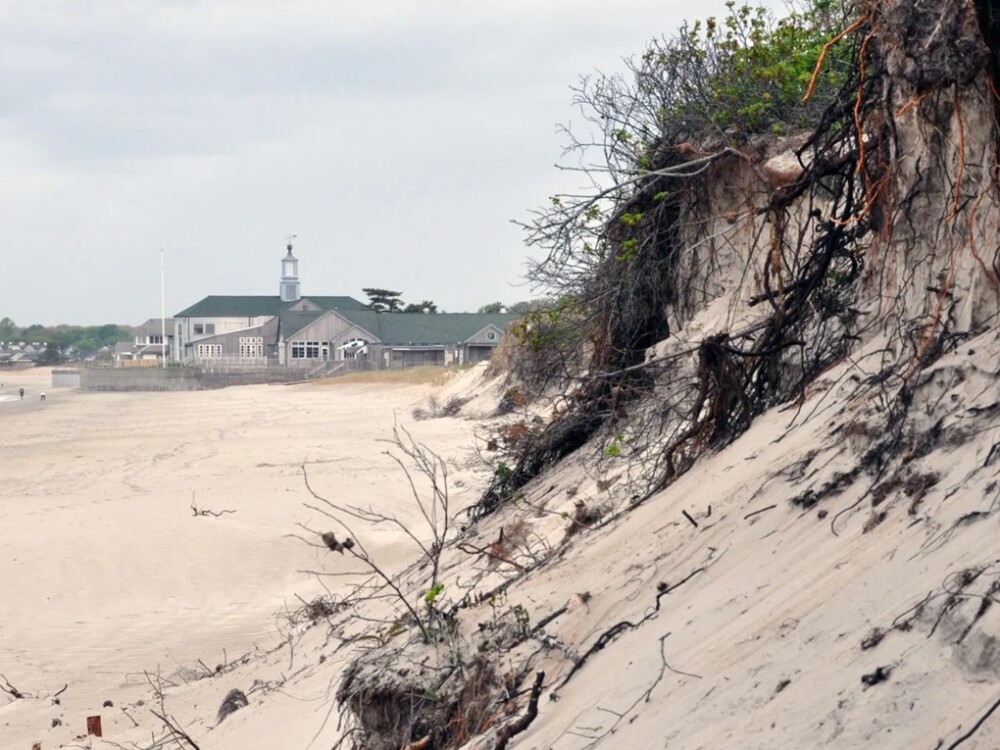As rising seas and stronger storms, due at least in part to climate change, are carrying off tons of sand from Rhode Island beaches, a legislative commission tasked with developing ways to slow beach erosion met at the State House for the first time on Oct. 28.
Some of the hardest hit areas in the state have been eroding at a rate of five feet per year, according to J.P. Walsh, professor of oceanography at the University of Rhode Island. The Rhode Island Coastal Resources Management Council says, on average, the state’s coast is losing .7 feet per year to erosion.
That will inevitably impact the billions of dollars the Ocean State brings in from beach-going tourists, said state Rep. Samuel Azzinaro.
“Beach erosion means less space for tourists to visit, businesses to exist, and locals to live,” said Azzinaro, who represents Westerly and chairs the special commission on beach erosion. “All of which means less revenue for the cities and towns in the state.”
The General Assembly created the nine-member commission in April.
This story was reported by The Public’s Radio. You can read the entire story here.







